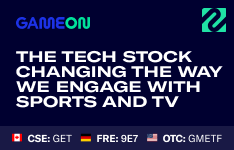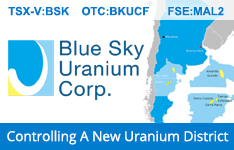Tech Startup Is Reinventing How the World Plays in the Digital Era
GameOn Entertainment Technologies is trying to power the most-watched content in the world with the most innovative fan engagement technologies. The game is to compel viewers to keep playing for bragging rights or NFT collectibles worth far more than the cost to get them. The tech startup already has licensing and revenue sharing deals with U.S. cable firm Comcast and MX Player, the most popular TV app in India. And it’s just getting started.
“GameOn has a distribution partnership with U.S.-cable provider Comcast to deliver GameOn-branded sports prediction games to homes and other venues across America... Revenue comes from a licensing fee.”
In the mid-1990s, J Moses headed BMG Interactive, a meager group of top-drawer game developers tucked into a subsidiary of private German firm Bertelsmann, known for its diverse global holdings, some of which were in radio, television, and music — as in BMG Music.
“GameOn went public with CA$5.3 million in the kitty… and could operate a while before it needs to raise money.”
By late 1997, BMG Interactive, a little-known division of BMG Music, had developed 13 video games. One of those titles would go on to sell some 350 million copies. It was Grand Theft Auto.
Moses green-lighted the first version of GTA but says the game’s heavy use of violence made BMG management queasy.
“Let's just say that a game like GTA didn't necessarily fit into the ethos of the business. So after we created the business and built all these games, (BMG) sold most of the games as a package,” Moses tells Streetwise.
Take-Two Interactive Software (TTWO:NASDAQ) paid 1.85 million shares or about US$14 million in March 1998 for the titles and some developers. But not Moses.
Moses went to Moscow where he launched MTV Russia before returning to America to manage online community and gaming company, UGO Networks.
He guided the sale of UGO to media mogul Hearst Corp. in 2007 (which sold it to Fox in 2020) before joining some familiar faces at Take Two Interactive as an independent director. Over the next 14 years, Moses helped steer the gaming company, known not only for GTA but other hits such as Max Payne and Manhunt, to unprecedented share price highs.
“I'm still very much involved with these titles,” Moses says.
His success in virtual content creation led to his recent appointment as chairman of GameOn Entertainment Technologies (GET:CSE;GMETF:OTC;9E7:FSE), a white-label, business-to-business platform designed to increase audience engagement through the “gamification” of linear, medialike television.
“I don't know where it's going to end up, but I believe [GameOn] will be a very attractive M&A target.” — J Moses
The 61-year-old Moses sees parallels between the GameOn business model and the video game universe.
“People think of the video game business as graphics and storylines, which, of course, is true. But really at its core, you're engaging with content, you're engaging with community members. And you’re impacting the product in the way you play. Those are the defining features of interactive media,” Moses says. “The product that Matt and his team are building is something that's much more akin to the basic elements of video games.”
Matt is Matt Bailey, a former executive with the parent company that owns the Brooklyn Nets and Barclays Center. He left to become GameOn CEO and director.
GameOn’s first product was a prediction game where a player watching a live sports match could predict things in real time to earn points, climb leaderboards, and compete with peers. More recently, the company advanced to an NFT (non-fungible token) predictor that leverages “collectibles.”
Just what is a non-fungible token, you ask?
Something that isn’t fungible is unique. For example, a dollar is fungible. If someone gives you a dollar and you have another dollar, you would have two identical items. But if someone gives you the original Mona Lisa, that’s non-fungible. It’s one of a kind.
NFTs are a type of unique virtual currency that is part of a blockchain. They can be almost anything digital (video, audio, drawings, music, etc.) and are usually bought, sold, or earned through an online marketplace. GameOn’s recently announced partnership with the bestselling Chibi Dinos NFT project is their latest investment in this space.
An NFT video of a slam dunk by National Basketball Association star LeBron James also made headlines in April when it sold for more than $387,000 on NBA Top Shot, the league’s NFT platform. Since it went live less than a year ago, NBA Top Shot has raked in roughly US$700 million.
That’s the business and community GameOn is targeting.
“We go to potential partners like sports leagues, TV networks, broadcasters. And if they already have a marketplace with NFTs and collectibles, we add a layer of gamification over the top of it and give those collectibles a utility that's never been seen before,” Bailey explains. “So you're not just buying and selling in a very steady engagement (with viewers/customers), you're now able to buy or earn that NFT or collectible and then use it in a game.”
“Empty hulks of businesses that attempted and failed at gamification are strewn along the digital highway. Bailey has seen the carnage. He insists GameOn is different.”
If the partner doesn't have a marketplace, GameOn can do that, too. The tech startup has partnered with New York City-based Blockparty, an NFT blockchain provider to deliver a marketplace. GameOn then adds the gamification layer.
But fan engagement is tricky. Empty hulks of businesses that attempted and failed at gamification are strewn along the digital highway. Bailey has seen the carnage. He insists GameOn is different.
“GameOn will introduce MXPlay to its free-to-play cricket prediction games. Both companies will split ad revenue 50/50.”
“Gamification isn't a new concept. It's been around for years, decades even. But most (businesses) fail in our world because they're just tapping into one motivation — play and win, play and win. That's one motivation, but it's not really the true motivation that that fuels fandom. If you think about office pools, for example, they're not successful and engaging because you're going to win $100 bucks: It's because you get to go to the office after winning the office pool and get the recognition that you've earned and the bragging rights,” explains Bailey.
Bailey sees GameOn entering fantasy sports (it boasts Sean Hurley, who ran the sportsbook at DraftKings, as an advisor) at some point but for now the plan is to stick to the “low-hanging fruit,” which he sees as sports and other nonscripted television like reality TV.
To that end, GameOn has teamed with India’s MX Player, which is broadcasting the ICC Men's T20 World Cup 2021, which begins match play on Oct. 17, 2021.
MX Player has some 280 million viewers in about 20 countries, many of whom are cricket crazed. GameOn will introduce them to its free-to-play cricket prediction games. Both companies will split ad revenue 50/50.
“To exclusively power MX Player's free-to-play prediction games is a huge opportunity to further engage an already passionate fan base that is yearning for cricket and connectivity," Bailey says.
It did another deal with Willow, North America’s over-the-top app for cricket, which reaches about 3.5 million homes.
Bailey tells Streetwise that GameOn also has outlined a deal with a basketball league based in Europe. GameOn is keeping that announcement under wraps until the final details are worked out.
Moses sees a day when sports leagues will not only want the kind of tech offered by GameOn, they will need it.
“The (revenue) driver for sports, has been television broadcasts, broadcast cable, etc. So if the audience continues to get smaller, it's going to have very serious implications for the leagues, the players, the infrastructure,” Moses explains. “If they don't figure out how to engage their customers, it's just going to be a much smaller business than it was 20 or 30 years ago.”
GameOn is already making it happen.
The tech startup has a distribution partnership with U.S.-cable provider Comcast to deliver GameOn-branded sports prediction games to homes and other venues across America, while its prediction products for reality TV and sports are embedded in the Comcast-owned NBCUniversal TV infrastructure. Revenue comes from a licensing fee.
GameOne listed on Canada’s Vancouver-based TSX Venture Exchange on June 1. It was previously known as V2 Games, a spinout from about 20 companies under the Victory Square Technologies (VST:TSX.V) umbrella, the brainchild of Vancouver-based entrepreneur Shafin Diamond Tejani.
Victory Square still owns more than 22% of GameOn, and Tejani has a seat on the board.
GameOn went public with CA$5.3 million in the kitty. It should start to see revenue in Q4 and, with a burn rate of about CA$250,000 monthly, the small cap could operate a while before it needs to raise money.
Bailey says the is goal is to one day “up list” and join the best-in-class tech stocks on the NASDAQ. But the opportunity to re-engage dwindling viewership numbers among professional sports leagues might be what keeps GameOn from ever reaching the bigger bourse.
Moses sees another likely path.
“One of the advantages of being a public stock is that your value is determined by the market, which makes it easier to buy,” Moses told Streetwise. “Right now, large tech companies are buying smaller tech companies, and [share prices] are really largely being driven by acquisitions. I don't know where it's going to end up, but I believe [GameOn] will be a very attractive M&A target.”
GameOn has a market cap of CA$18.8 million, and it trades in a 52-week range of $0.225 and $0.98 with 61,696,536 million shares outstanding.
Want to learn more about getting in on the game? Read all about GameOn here.
Disclosure:
1) Brian Sylvester compiled this article for Streetwise Reports LLC and provides services to Streetwise Reports as an independent contractor. He or members of his household own securities of the following companies mentioned in the article: None. He or members of his household are paid by the following companies mentioned in this article: None. His company has a financial relationship with the following companies referred to in this article: None.
2) The following companies mentioned in this article are billboard sponsors of Streetwise Reports: GameOn Entertainment Technologies. Click here for important disclosures about sponsor fees. The information provided above is for informational purposes only and is not a recommendation to buy or sell any security.
3) The article does not constitute investment advice. Each reader is encouraged to consult with his or her individual financial professional and any action a reader takes as a result of information presented here is his or her own responsibility. By opening this page, each reader accepts and agrees to Streetwise Reports' terms of use and full legal disclaimer. This article is not a solicitation for investment. Streetwise Reports does not render general or specific investment advice and the information on Streetwise Reports should not be considered a recommendation to buy or sell any security. Streetwise Reports does not endorse or recommend the business, products, services or securities of any company mentioned on Streetwise Reports.
4) From time to time, Streetwise Reports LLC and its directors, officers, employees or members of their families, as well as persons interviewed for articles and interviews on the site, may have a long or short position in securities mentioned. Directors, officers, employees or members of their immediate families are prohibited from making purchases and/or sales of those securities in the open market or otherwise from the time of the decision to publish an article until three business days after the publication of the article. The foregoing prohibition does not apply to articles that in substance only restate previously published company releases. As of the date of this article, officers and/or employees of Streetwise Reports LLC (including members of their household) own securities of GameOn Entertainment Technologies, a company mentioned in this article.
































































